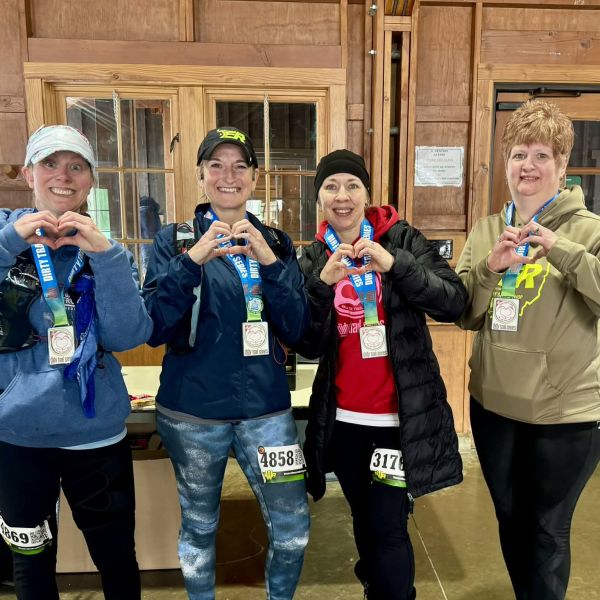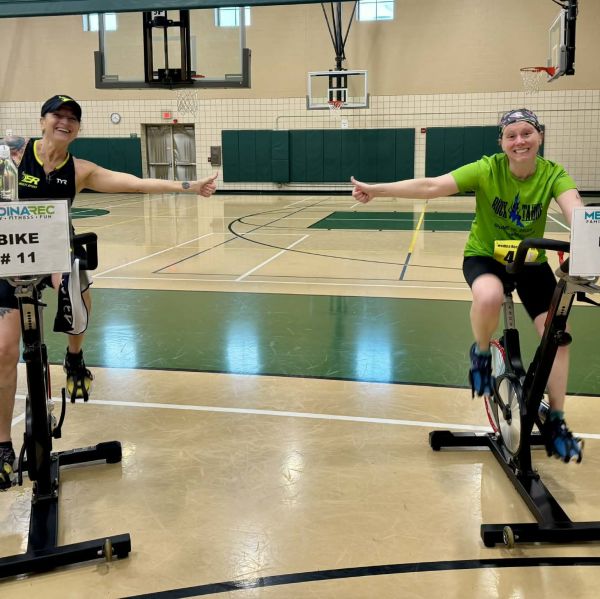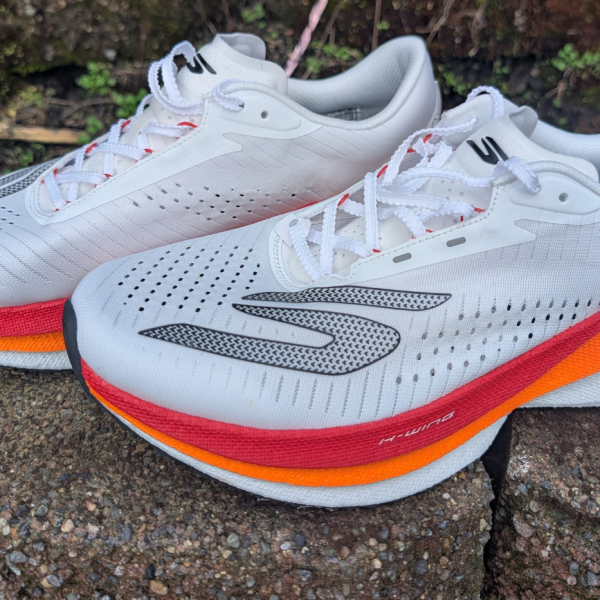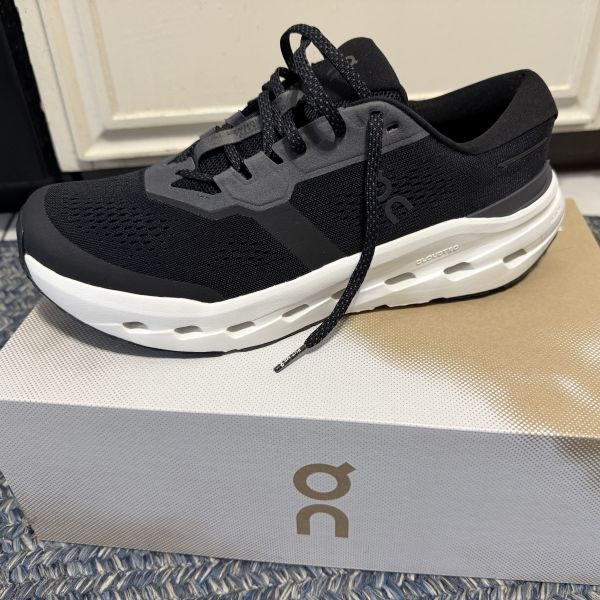Take a look at FKT (fastest known time) records, and you'll see a lot of men on the leaderboard.
Women Who FKT are on a mission to change that.
Here's how...
Stepping up to a start line takes guts. After months—or even years—of training, it all comes down to the moment of truth.
Every race is a new opportunity to show what you’re made of, but...
Races aren’t the only way to do that.
Runners everywhere learned from strings of COVID cancellations that racing isn’t the end all, be all of running.
Turns out, most of us still love to run for running’s sake. Races are just icing on the cake.
Competition still plays an important role in running, though.
Races give us the chance to get in touch with our competitive side, whatever that looks like for each of us like:
They’re the simplest, most straightforward way to build healthy competition into your running routine.
👉But there's at least one more way to test your limits, without showing up to a race...
Fastest Known Times offer runners another competitive outlet beyond traditional races.
Setting an FKT means stripping away the structure and support of racing so that you’re left with nothing but the bare essentials of running:
FKTs themselves are nothing new.
Runners have been setting and documenting their Fastest Known Times for decades already, ever since Peter Bakwin and Buzz Burrell launched the official database in 2000.
Runners from anywhere in the world can submit their best efforts on established routes or brand new courses of their own design.
The issue is, most of those FKTs have been set by men.
Despite more women in running—across all domains of the sport—than ever, running remains overwhelmingly male-centric.
That’s especially true once you look beyond the regular racing scene.
To take steps toward changing that dynamic, Marta Fisher founded Women Who FKT.
Fisher firmly believes that female runners are fully capable of not only balancing the scale, but beating the men.
Build a foundation of inspiration
It just takes building a foundation of inspiration for all those women out there with the potential to do so.
“When you look at things like the FKT hashtag on social media,” Fisher explains, “it seems like it’s a lot of guys that talk about the big things they did."
Encourage more women to share FKT records
"It really did seem like it was kinda a bro-ey sort of thing, where men could pound their chests and talk about how strong they were. Nobody’s saying you’re not welcome here, but at the same time you can see that women distinctly aren’t putting themselves out there in the same way.”
...is proving that alternatives to the status quo exist in the first place.
Women Who FKT highlights those who are already leading the way so that the community can grow from there.
The idea behind Women Who FKT was born from the collective minds of five ambitious runners in the Pacific Northwest.
What began as a small project centered in the PNW has quickly grown into a much larger endeavor that’s catching the eye of female runners nationwide. The group’s goals have grown to match.
They have three main objectives in mind:
1. Beating the men and forming a coalition of women to share in the challenge.
2. Opening up the world of FKTs to new people that may never have strayed from racing without the right introduction to all the other possibilities available to them.
3. Increasing diversity as a whole to prioritize gender-diverse runners and women of color as well.
There’s no denying that setting an FKT comes with its own set of challenges.
FKTs aren’t for the faint of heart.
But the mistake would be assuming that women and other underrepresented runners aren’t up to the challenges just because they haven’t caught up to the men yet.
The sport simply needs more role models to guide future runners forward.
In fact, many runners who don’t necessarily excel in races might find themselves more suited for FKTs.
Setting a successful FKT is just as much about navigation and coordination as it is about speed.
“You essentially have to be your own race director,” Fisher says. “There’s much more planning involved, more route scouting, organizing your support system, carrying heavier gear… It’s a different skillset.”
It’s easy to get intimidated by all the additional factors, but the distinctions also make room for underdogs in the racing scene to exercise different strengths that play out in your favor on an FKT.
FKT = Run your own race
“Someone else who might be technically faster than you might not be as good at navigation, which they don’t have to do during a race,” remarks Fisher.
“It’s also very different to be racing a time versus a person. You don’t have anyone around you to be a relative judge of your pace, everything has to come from inside.”
Intrinsic motivation: The FKT advantage
Runners with a strong sense of intrinsic motivation, then, could very well outperform traditional racers who usually rely on external sources of energy—like crowds or head-to-head competition—when thrown into an FKT setting.
Women Who FKT hopes to help female runners find the confidence to chase more FKTs.
Seeing women as role models in this space helps others unleash their own special skills that could lead them to unexpected success.
This community is just the starting point for a new wave of female pioneers.
And that’s a whole other reason to embark on FKTs.
“The more first times that are put down, the more people that can put down second times. The more routes out there, the more challenges and the more stoke for setting more times.”
—Women Who FKT founder Marta Fisher
To support Women Who FKT, here are 5 things you can do...
1. Start by setting your own Fastest Known Time and publishing it on fastestknowntime.com.
2. If you share about it on social media, make sure to tag @womenwhofkt for mutual benefit: you can align your hard work with their vision, and they can share your accomplishment with their ever-growing audience.
3. If you aren’t sure where to begin with setting an FKT, look to your local routes first. FKTs aren’t limited to grand adventures in remote locations.
4. Make it a group effort by gathering a list of routes in your region that need a female FKT, and share it with WWFKT to help others nearby figure out their own starting point.
5. Check your Strava. It’s also possible that you’ve already bagged an FKT without knowing it. Check your Strava log to see if you hold any records. Cross-check on the database, then submit your evidence to earn the title.
Women Who FKT may have started out as a small local project, but it has the potential to spread throughout the country and the world.
Anyone interested in being a point of contact for the community in regions beyond the PNW can reach out to womenwhofkt@gmail.com.
With enough (wo)manpower, we can even the playing field...or even beat the men outright.
Check out Brynn Cunningham's FKT records, tips and advice...

Login to your account to leave a comment.





We Want to Give it to You!
